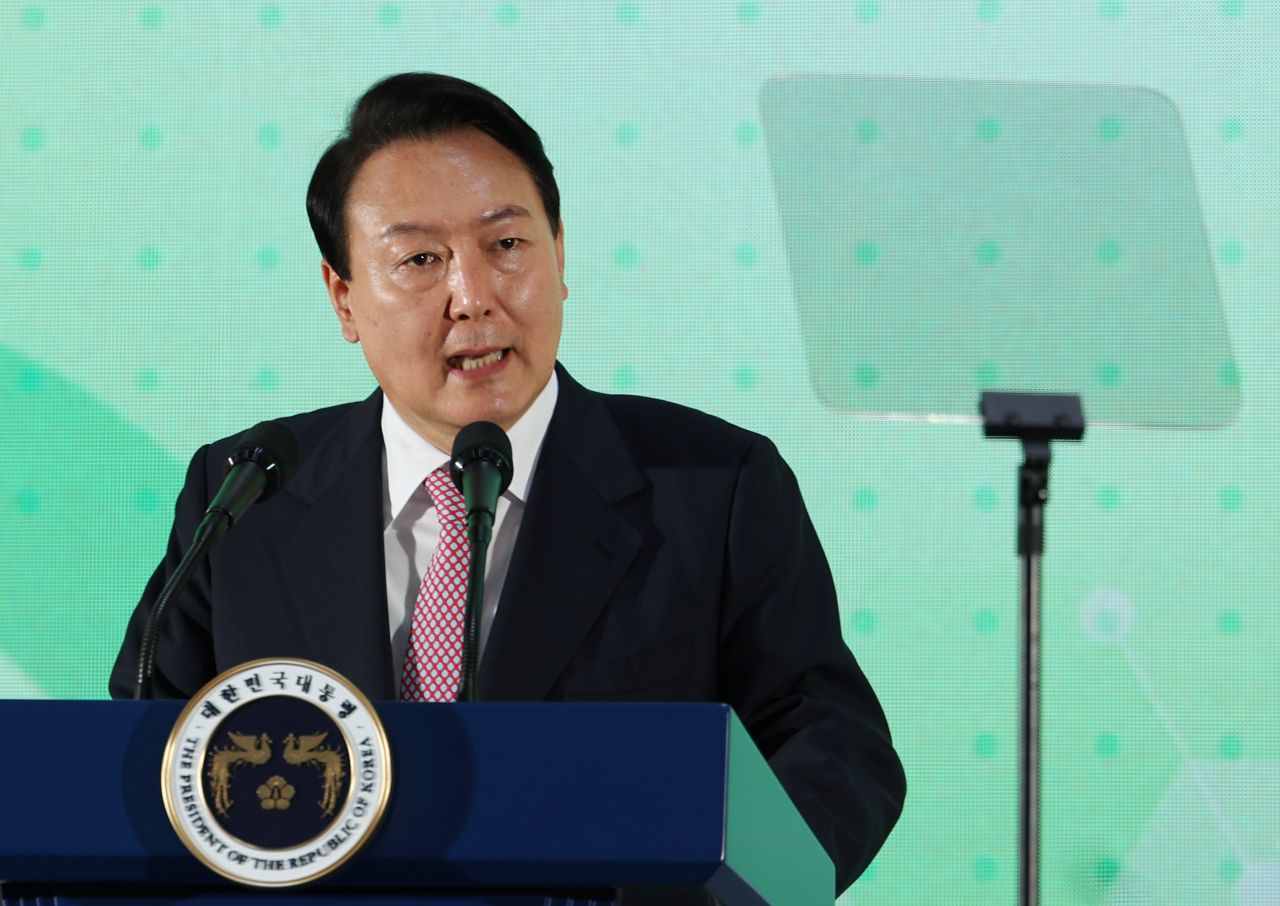President Yoon Suk-yeol and the ruling People Power Party’s political clout is growing, following a landslide victory in the June 1 local elections despite the opposition dominating the National Assembly.
Yoon vowed to dedicate all his energy to stabilizing people’s livelihoods.
The local elections are crucial for Yoon, as they determine the political direction of the first two years of his administration before the 2024 general election takes place. In the elections held 22 days after the launch of the new government, voters chose “stability” to empower the current Yoon administration.
“The election results show the will of the people to revive the economy and protect their livelihoods,” Yoon was quoted as saying by the presidential office’s spokesperson Kang In-sun a day after the election.
“The lives of ordinary people are very difficult,” Yoon said. “The most urgent task is to revitalize the economy. To this end, we will work hand in hand with local governments to overcome difficulties together.”
The president vowed to “put all efforts” into stabilizing people’s livelihoods with the attitude that “the first is economy, the second is economy and the third is economy.”
In April, the economy decreased simultaneously in production, consumption and investment for the first time in two years and two months. The decreases came amid growing inflation worldwide due to disruptions in the global supply chain and the prolonged Russian invasion of Ukraine. The consumer price growth reached 4.8 percent last month, the highest in 13 years and six months.
The government announced on Monday its “10 projects for urgent livelihood stabilization” and came up with various measures to stabilize consumer prices. Allocation tariffs on 14 imported items such as pork and flour oil are lowered to zero percent. Special consumption tax cuts for passenger cars have been extended to the end of the year. Holding tax for single-family homeowners has been reduced to the level in 2020.
Despite the measures, their impacts remain to be seen. The government predicted a 0.1 percentage point drop in prices.
Yoon to seek cooperation from opposition partyTo get concrete results, cooperation is inevitable in the opposition party-dominated National Assembly. The Yoon administration is likely to push for meetings with Democratic Party leadership, which have been delayed.
The People Power Party said they would never be “conceited” about winning the election and would cooperate with opposition parties.
In a commentary released on Thursday, the party’s senior spokesperson Heo Eun-ah said, “We need to cooperate with opposition parties to solve pressing social problems, such as economic instability, provinces’ extinction and isolation of the socially disadvantaged.”
She added, “The People Power Party and the Yoon government will not forget about cooperation with the opposition party and will work hard so that all people can become one on the way to the future.”
The party’s floor leader Kwon Seong-dong urged the Democratic Party to respond to the public’s desire for cooperation.
“For cooperation, (the Democratic Party) needs to return the chairman of the National Assembly’s Legislative and Judiciary Committee to the People Power Party,” he said, adding the opposition party “cannot occupy both” the National Assembly speaker and the Judiciary Committee chairperson roles.
The Legislative and Judiciary Committee is responsible for matters related to the Ministry of Justice, the Constitutional Court, the impeachment proceedings, disciplinary action and qualifications review of lawmakers. As it has great authority, competition between the ruling and opposition parties is fierce to grab the chairperson role.
Political experts say cooperation is necessary for the both ruling and opposition parties, but it is not easy given how starkly polarized the political circle is between two parties.
“There is a good chance of cooperation (from the Democratic Party) because they now need self-reflection and cooperation rather than criticism,” said Park Sang-chul, a professor at Kyonggi University’s Graduate School of Politics and Policy.
“Political cooperation is, however, not easy within the political structure of our country,” he said. “Since both camps have a confrontational structure, attacks are made immediately if there is a gap in one side. Cooperation is considered giving up or submitting instead of supporting.”
By Shin Ji-hye (
shinjh@heraldcorp.com)








![[Today’s K-pop] Blackpink’s Jennie, Lisa invited to Coachella as solo acts](http://res.heraldm.com/phpwas/restmb_idxmake.php?idx=644&simg=/content/image/2024/11/21/20241121050099_0.jpg)